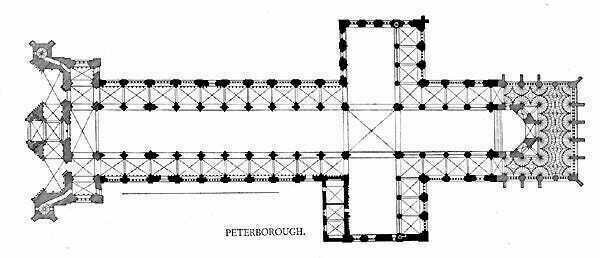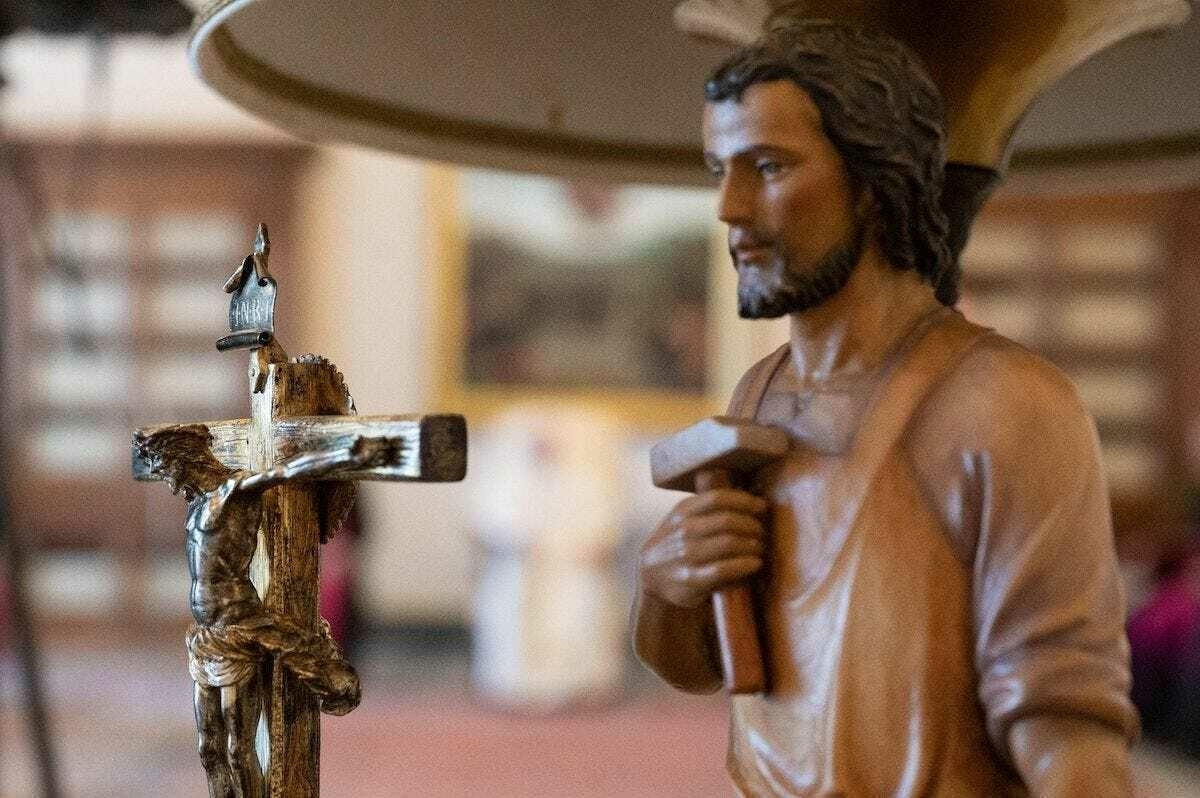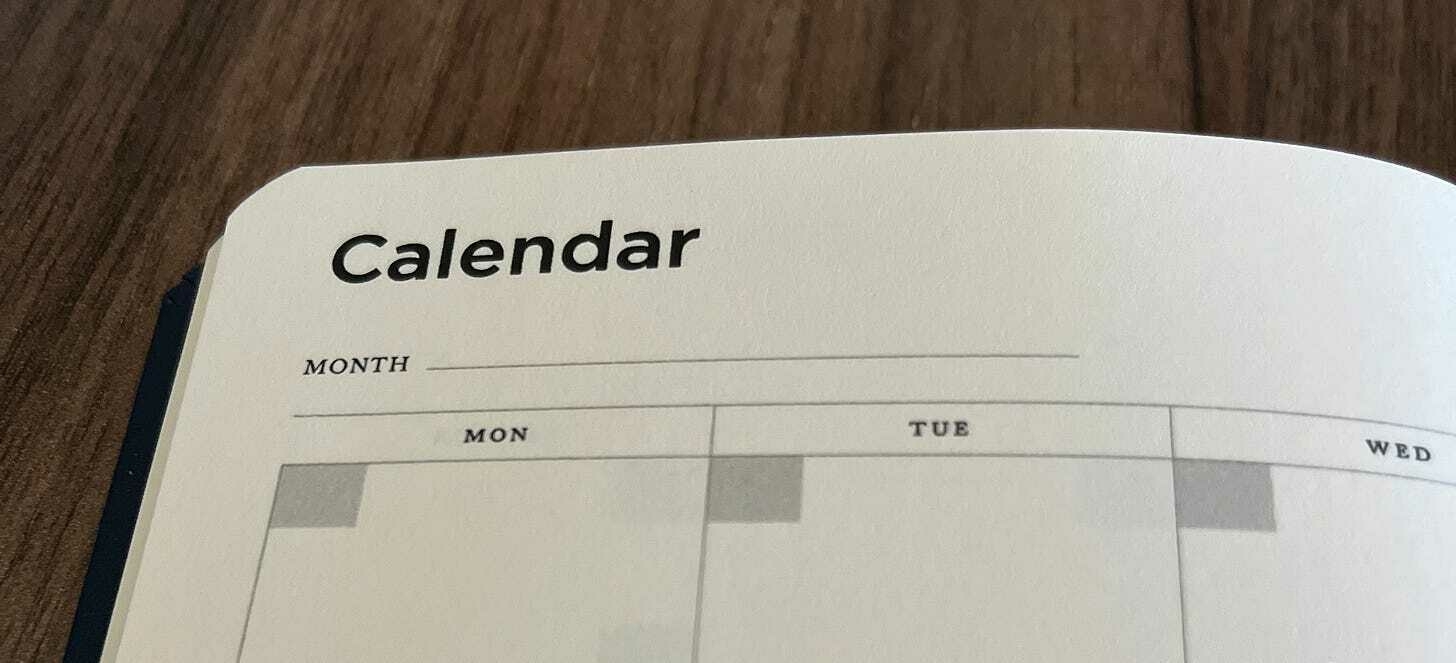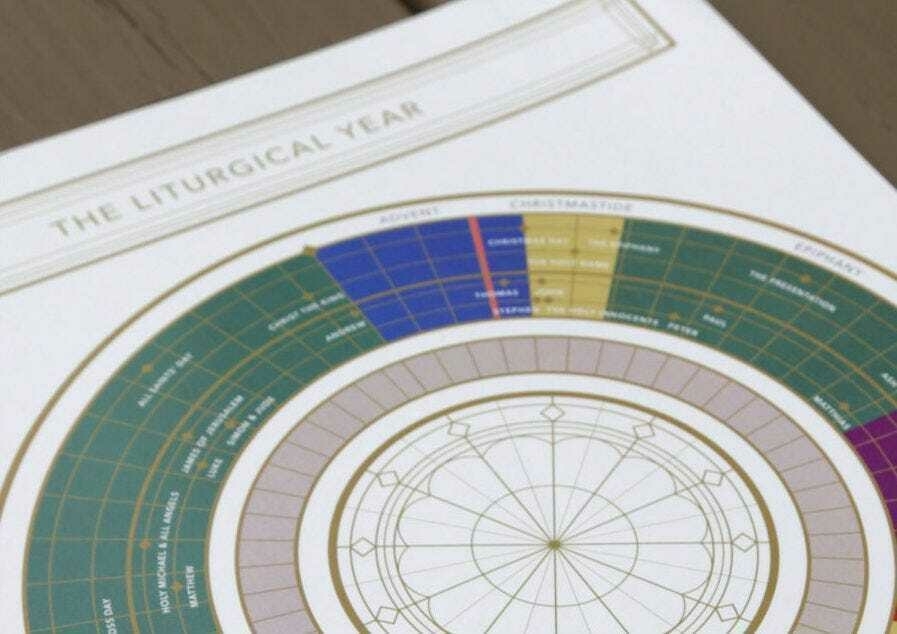Holy Cross Day
September 14
Calendars, by their very nature, are reminders of important things we already know but that we risk forgetting in the business of life. One of the benefits of adopting the practice of following the Church calendar is the nearly constant reminders that come along with it.
Holy Cross Day, celebrated on September 14, is a perfect example of this.
On a day that falls squarely on the other side of the calendar from Good Friday, we are reminded again of the centrality of the Cross.
The Triune God revealed throughout the Scriptures is many things: Creator, Judge, Healer, Comforter, source of all Wisdom and Mercy. But at the center of this story is a crucified Savior, who took on the sins of the world.
Christians have done many things throughout the ages to ensure their lives are—at times quite literally—marked by the cross. Tertullian was known for making the sign of the cross on just about every physical object he interacted with. It was his way of ensuring that everything he did—from writing a letter to getting dressed—was done in light of the Gospel. In many churches, the congregation makes three small crosses using their thumb—one on their forehead, one on their lips, and one more over their heart—whenever one of the Gospels is read aloud. This is a physical reminder that the Good New of God in Christ is to be always on our mind, on our lips, and in our hearts.
When Christians began to build their own churches, the vast majority of them were designed with a cruciform layout. This is not the most practical of designs, but it did ensure that the people of God were cross-shaped when gathered together for worship. (This practice is still very much alive in many corners of the church today.)
There is also a rather impressive history of variants in the cross design itself, with each rendition signifying an important aspect of the Cross of Christ.
So, on this Holy Cross Day, how can you be shaped by the cross?
Habit to Adopt: Find somewhere to display a cross, perhaps where you need to see it most. It can be as simple as a sticky note on your dashboard, or an ornate crucifix in your study. Allow this visual reminder to orient your thoughts back to the forgiveness extended to you by God himself. Sometimes this is what we need if we have any hope of extending the same to others.
Historical Note: The origin of celebrating this Holy Day—which was originally called the Feast of the Exaltation of the Cross—dates back to the dedication of the Church of the Holy Sepulchre (Jerusalem) in AD335 by Emperor Constantine. Within a few decades of this dedication, this feast had also became associated with a growing number of stories that St. Helena (Constantine’s mother) had discovered the original cross at the Sepulchre. A 4th century Christian text is the first to associate the date of September 14 with both the discovery of that cross and the celebration of this feast.
To my earliest paid subscribers: thank you! I am greatly encouraged to by your support.
O earth, how like to heav’n, if not preferred
The opening line of Satan’s soliloquy in Book IX of Paradise Lost.
Grass: the great American contribution to world soccer this fall.
The seed, developed by a Georgia-based company, has been selected by FIFA, which has instructed Qatar 2022 organisers to use it for playing surfaces at all stadiums and training grounds.
Introducing Rhythms of Habit - a newsletter about approaching the church calendar as an apprenticeship in holiness
I am thrilled to introduce Rhythms of Habit, a newsletter about approaching the Church Calendar as an apprenticeship in Holiness.
In addition to (hopefully) being a helpful and informative newsletter, this project is also a means of finalizing the draft of my next book, called Rhythms of Habit: The Church Calendar as an Apprenticeship in Holiness.
If you are already sold, head on over to Substack to join as a free or paid subscriber. If you need to hear more, read on!
A little more about the Rhythms of Habit project:
As we live out the Christian Year together, three types of posts will be published:
- Introductory: these posts explain how following the calendar is good for your growth as a Christian. The first three of these are free to everyone, and help give a foundation for why you might want to start following the Church Calendar.
- About the Church Calendar: these posts share the history of the church calendar, some things that are helpful to know, and help answer common questions. Why do we celebrate saints? What is Epiphany really about? How did these seasons develop? What is a Triduum?
- Holy Day / Holy Season Reflections: these posts are the real core of the newsletter. As we encounter Holy Days and Holy Seasons throughout the year, you will be given habits to consider adopting that are rooted in who or what is being celebrated by that day or season.
If you are new here or new to the Church Calendar, you may want to explore the free introductory posts. Think of these as the introductory foundation of the newsletter.
More of these Introductory posts, along with many About the Church Calendar posts will be sent throughout the year to subscribers.
But here is the real core of the newsletter: Holy Day and Holy Season reflections.
As we progress through the Church Calendar year after year, reflections on major and minor Holy Days will be shared. Yes, you will learn more about the calendar itself. But more importantly you will be given daily or seasonal practices and habits to adopt, in hopes that these habits will help you grow in Christ. You can find a free preview of these sort of reflections here: Feast of St. Joseph.
Why Subscribe?
Free subscribers have access to some of these posts throughout the Church Year. If you like what you are reading, consider becoming a paid subscriber to make sure you receive all new reflections as they are published, and gain access to reading all old reflections, too.
The first Holy Day reflection will be on September 14th, when we celebrate Holy Cross Day. Subscribe by then to make sure you don’t miss a post!
St. Joseph, March 19
St. Joseph is a model of quiet, often thankless work that paves the way for Jesus to be known and loved.
George Weigel describes the history of God’s dealing with humanity as “an extraordinary story involving some utterly ordinary people.”
An adopted son of a slave with a speech impediment is used by God to accomplish the greatest saving act of the Old Testament. The King of Persia’s bartender is used by God to restore the city of Jerusalem after its destruction at the hand of Babylon. A group of ragtag fishermen and rabbinic school dropouts are used by God to establish the Christian Church, and are told by Jesus that they will spend the rest of their lives doing “greater things than these.”
And right in the middle of this extraordinary story lies Joseph of Bethlehem. An ordinarily quiet dad who works hard, forsakes his legal freedom to dismiss Mary, and instead bears the brunt of communal shame so his new wife doesn’t have to. (Not to mention that his first experience in parenting involved raising the Son of God.)
I am the proud owner of multiple pairs of socks that feature Saints from the Scriptures and Christian history. The side of each sock bears the image of the Saint, and on the bottom of each foot is a famous quote from their life and work.
As a (sometimes) quiet dad myself, I naturally own a pair of Saint Joseph socks.
And printed on the bottom of each foot is the following quote:
“ ."
- St. Joseph
Joseph has no recorded words in the Christian Scriptures. He is visited by an angel. He leads his family on several journeys: first to Bethlehem for the less-than-glamorous birth of Jesus, then to Egypt, this time as refugees. And after several quiet years in Egypt, Joseph leads his family once more to settle down in the podunk town of Nazareth. And from this point on, we know very little about how Joseph spent the rest of his days.
We see in St. Joseph a model of quiet, often thankless work that paves the way for Jesus to be known and loved.
Habit to Adopt: At some point throughout our week, we all have quiet, thankless work to do. We are washing the dishes, or filing papers, or taking out the trash. The next time you catch yourself doing this routine work, turn off the TV, take out the headphones, or otherwise limit distractions. Allow the quiet—and the noise of the work itself—to remind you to pray that God will use your otherwise menial task to somehow make Jesus known and loved.
Intro 3: Why We Need a Calendar
You are what you schedule
Imagine today is January 2nd, and a friend bumps into you in the produce aisle of the local grocery store. After picking up the groceries that fell out of your hand you make eye contact and say “Happy New Year” followed by an awkward smile. Your “Happy New Year” is interpreted appropriately by your friend as “Seeing as we are only two days into the new year according to the Gregorian Calendar, I wish you well in the 364 days ahead of us.”
So far no surprises.
Now imagine that it is August 12th, and you have just returned to school as a teacher. You are greeted by a parent of one of your students as you are walking out of an orientation meeting. After asking about your summer, and waiting the appropriate amount of time to show just the right level of interest in your answer, they look you in the eye and say “Blessings on your new year.” You and this parent both interpret the words “Blessings on your new year” to mean “I wish you well in the school year ahead of us, which begins tomorrow and ends in the middle of May.” Neither of you assume that the words “Blessings on your New Year” shared in August refer to the Gregorian New Year celebrated on January 1st. It is clear that the School Calendar, and not the Gregorian Calendar, are in mind here.
For a final time, imagine with me that it is the end of a particularly disappointing season for your favorite sports team. Slowly making your way out of the stadium, a face-painted stranger bumps into you and says, “there’s always next year.”
Nobody interprets this to mean that as soon as 2017 becomes 2018 your team will be granted immediate success. We know that, in this case, next year simply means next season, whether that season begins in the current Gregorian year or not.
As my grandfather would say, “I hope you are sniffing what I am stepping in.”
It turns out that when we say “Happy New Year” we may actually be referring to a wide range of calendars, each with their own “new year” celebrations. Whether we do so intentionally or not, we all follow a variety of calendars, whether they are national, cultural, personal, lunar, solar, marital, or recreational in nature.
This is the first premise of this chapter: We already follow a variety of calendars.
So far this is merely an observation of the way things are. What comes next begins to reveal why it matters that we pay close attention to the calendars we follow.
You Are What You Schedule
Every Spring I conduct an experiment with a group of students. I did this once with a group of teachers and, to many of the students’s surprise, the results were nearly identical.
I ask the students to respond to what I am about to say with a simple facial reaction. They are to smile if their response to my words is generally positive, and frown if their response to them is generally negative.
Then I ask them to give me a blank facial expression before I utter those words every student longs to hear: “Summer break.”
As you can imagine, the room was full of smiles.
Everyone in the room, whether teacher or student, has spent a good amount of their life following the school calendar. By following this calendar year and year, they have actually learned to love summer.
To an accountant, or an engineer, or a doctor, “summer” is simply the time of year that you go to work when it is hot outside. To those of us in the world of education—even for those of us who work through the summer—there is a sense of freedom, flexibility, and bliss when summer arrives.
The School Calendar has taught us what to love.
We have already agreed that we follow a variety of calendars. But there is more at stake here. Calendars actually have the power to shape what we love, to influence our desires. Whether we are paying attention to them or not, the various calendars we follow are shaping our desires.
This should be at least a little alarming to us. Our affections—what we love and what those loves drive us to do—make up the very core of who we are.
If what I am saying is even remotely true, then our affections are shaped in part by the calendars we follow. And some of the calendars we follow are shaping our affections for things that are not worthy of our affections. This should worry us a bit.
God of the Calendar
But here is the beauty of thinking about things like this as Christians: we worship a God that knows that our affections can be shaped by our calendars. And if we read the Bible carefully, it appears that we worship a God that actually designed our affections to be shaped by our calendars.
Think about some of the great events of the Old Testament: Creation, The Exodus, the Institution of the Sacrificial System, just to name a few.
These events are so important to God’s people—they play such a significant role in the history of salvation—that God does not leave it to chance that his people remember them properly. He does not simply hope that during their spontaneous quiet time His people might happen to stumble upon descriptions of these stories in their Bible reading and then seek to apply them to their lives.
Think back to the Old Testament. What does God do?
God instructs his people to follow a calendar—year after year—that forces them to participate in remembering these events by re-enacting them as a community.
Creation and God’s Sovereignty is a really big deal. So every Saturday God instructed His people to rest from their labor in recognition of the reality that God is in charge of the universe, and they are not. Creation and God’s Sovereignty matter, so the Sabbath was placed on the Calendar.
The Exodus and Freedom from Slavery is a really big deal. So every year God instructed His people to celebrate the Passover by re-enacting the meal and remembering God’s salvation from slavery in Egypt. The Exodus matters, so The Passover was placed on the Calendar.
The Sacrificial system and the forgiveness of sin is a really big deal. So while repentance for sin was to be done continually, once a year God instructed His people to celebrate Yom Kippur, the Day of Atonement. Forgiveness of sin matters, so the Day of Atonement was placed on the Calendar.
When things really mattered, they were placed on Israel’s Calendar.
The Church Calendar
The goal of the Church Calendar is to shape our affections for the One most worthy of our affections: Jesus. How so?
Each year, if we follow the Church Calendar, we re-live the life of Jesus.
The Church Year begins with the anticipation of His birth (The First Sunday of Advent) and ends with a celebration of His current reign at the right hand of the Father (Christ the King Sunday). Along the way we commemorate his revelation to the Gentiles (Epiphany), His temptation in the Wilderness (Lent), His arrest, trial, and crucifixion (Holy Week), and His resurrection and ascension (Easter). These Holy Days — which is where we get the word holidays — form the foundation of the Church Calendar.
The preparation for and the celebration stemming from these Holy Days leads to a few major Holy Seasons. Sprinkled throughout the major Holy Days are several smaller commemorations that each help us keep the Good News of God in Christ at the center of our lives throughout the entire year.
Can the practice of following the Church Calendar be abused? Absolutely.
Paul reminds the Church in Galatians 4 that using the calendar to attempt to earn God’s favor is just as foolish as using anything to earn God’s favor.
Does this mean we should not use calendars as part of our discipleship?
No. Think about the other Spiritual disciplines.
Can prayer be abused? Absolutely, see Matthew 6 or Luke 18. Can reading the Bible be abused? Absolutely, see John 5. Can tithing be abused? Absolutely, see Acts 5.
Like any spiritual discipline, the Church Calendar is not immune to abuse.
But to dismiss the Church Calendar because of the potential for it to be abused is to allow other competing Calendars to continue to shape our affections unhindered.
When approached as an apprenticeship in holiness, following the Church Calendar can, by God’s grace, help shape us more and more into the image of Jesus.
Intro 2: Why We Need Habits
Becoming like Jesus by adopting his pattern of life
On Thursday, January 15th, a miracle took place in New York. Or so some people say. Flight 1549 took off from LaGurdia headed for Charlotte, NC only to run into a flock of geese minutes later. The damage to the engines was extensive, and it soon became clear that an emergency landing on the Hudson River was the safest course of action.
In a matter of minutes a number of crucial maneuvers needed to happen in order to avoid a disaster. The Captain and the Co-pilot had to shut down the engines, set the right speed so that the plane could glide as long as possible without power. They had to get the nose of the plane down to maintain speed, but then get it back up again before hitting the water. They had to disconnect the autopilot, override the flight management system, and activate the ditch system which seals vents and valves to make the plane waterproof. Perhaps most importantly of all, they had to glide the plane towards a sharp left-hand turn so that they could land the plane facing south, going with the current of the river. Then they had to level the plane from the tilt of the turn, so that on landing it would be exactly level.
This is a small list of some of what happened in the span of just a few minutes. And as you know, everyone survived the landing. Newspaper headlines across the world described this event as the Hudson River Miracle.
Gary Player, the great South African golfer, was once asked by a reporter after a particularly impressive round if he felt lucky that day.
“Sure,” he responded. “But I’ve noticed that the more I practice, the luckier I seem to be.”1
These two stories—ones I first heard packaged together by N.T. Wright years ago—tell us something about ourselves and the air we breathe: our culture values spontaneity. We prefer a spontaneous miracle, like the successful landing of Flight 1549, and a spontaneous performance, like Gary Players’ amazing round of golf.
But what actually happened in each circumstance? When we look past the headlines and beyond the events themselves, what do we find?
Oddly enough, we find the same thing in both stories:
Decades of training that led to the acquisition of habits that led to an embodiment of goodness when it mattered most.
Learning to do Anything Well
How is it that you learn to do anything well?
What does it take to become a great athlete?
A regimented diet. An exercise routine. A coach, or two, or three. A goal. Practice.
How do you learn an instrument? A new skill? A new language? How do you learn to walk? To speak? To listen in a way that your wife knows you are actually listening? (I’m genuinely asking here …)
None of these things “just happen.” They take work. They take effort. And sometimes they take a lifetime of work and effort to see any real fruit. This is simply how God has created us to learn and grow.
But here is where we sometimes stop thinking clearly about our faith:
What does it take to be a great Christian? In other words: What does it take to respond properly to the free grace we have been given in Christ?
Does it take work? Does it take effort? Does it take a regimented day? Or a coach, or two, or three?
Or does it just “happen?”
More often than not, I think you and I trick ourselves into thinking it just happens.
Jesus and Habits
Consider the following passage from the Gospel of Matthew
Then he made the disciples get into the boat and go before him to the other side, while he dismissed the crowds. And after he had dismissed the crowds, he went up on the mountain by himself to pray. When evening came, he was there alone, but the boat by this time was many furlongs distant from the land, beaten by the waves; for the wind was against them. And in the fourth watch of the night he came to them, walking on the sea. But when the disciples saw him walking on the sea, they were terrified, saying, “It is a ghost!” and they cried out for fear. But immediately he spoke to them, saying, “Take heart, it is I; have no fear.”
And Peter answered him, “Lord, if it is you, bid me come to you on the water.” He said, “Come.” So Peter got out of the boat and walked on the water and came to Jesus; but when he saw the wind, he was afraid, and beginning to sink he cried out, “Lord, save me.” Jesus immediately reached out his hand and caught him, saying to him, “O man of little faith, why did you doubt?” And when they got into the boat, the wind ceased. And those in the boat worshiped him, saying, “Truly you are the Son of God.”
Matthew 14:22-33
There are a number of startling features scattered throughout this familiar Gospel account. This passage includes a ghost sighting and humans walking on water. If I was one of the disciples, those are moments I would never forget.
As I spend more time with this passage, I think the real surprise might just be found in verse 23: Jesus himself took time out of his day to pray.
Now I am too committed to reading the Bible on its own terms to pretend that this is the main point of the passage. It probably isn’t even one of the main points of the passage.
But this sort of thing happens often enough throughout the Gospel narratives that it is worth spending some time considering for a moment: The reality is that Jesus regularly stops what he is doing, goes off by himself, and prays. And he does this even when surrounded by crowds that desperately need his healing and teaching. And I, at times, find this surprising.
Jesus did this constantly. Despite his mission and work, he developed a habit of prayer. We are called, above all else, to become like him.
We have no reason to believe that God will make us more like Jesus simply by zapping us with supernatural, no-effort-on-our-part holiness.
We want convenient store holiness. Conveyor belt holiness. Amazon Prime two-hour free delivery holiness. But the pages of the New Testament are full of calls to “work out our salvation with fear and trembling.” To “train ourselves for godliness.” You would have to search far and wide to find a command in Scripture to “sit and wait while God makes you holy through no effort of your own.”
Nearly forty years ago Eugene Peterson was able to diagnose one of our culture’s greatest collective diseases today: our preference for the cheap, and the casual, and the instantly-available:
“One aspect of our world that I have been able to identify as harmful to Christians is the assumption that anything worthwhile can be acquired at once. We assume that if something can be done at all, it can be done quickly and efficiently.”
So if becoming like Jesus does not happen in an instant, how does it happen? If it is not something that can be done quickly, and efficiently, how can it be done?
I have not read many recent authors who have answered these types of questions better than the late Dallas Willard.
“We can become like Jesus by doing one thing—by following him in the overall style of life he chose for himself.”
To become an athlete, you need to live the way an athlete lives: dedicating hour after hour each day to practicing mundane physical actions. Submitting your desires for food, for entertainment, and for sleep to your true desire to become a great athlete. You need to develop the habits of an athlete.
To become a musician, you need to live the way a musician lives: dedicating hour after hour each day to the practice of mundane physical actions. Sacrificing time with family and friends to study music theory. Committing to spend more time practicing music this year than you did last year. You need to develop the habits of a musician.
And to become like Jesus, you need to live the way Jesus lived: dedicating serious time each day to the studying of Scripture. Sacrificing time that you could be spending doing something really good to go off by yourself to pray.
To become like Jesus you and I need to develop the habits of Jesus.
Habits and Ritual
Spiritual disciplines are good works. They are the type of things we are called to do as followers of Jesus. When we structure our lives to include these good works on a regular basis, we are developing habits that God uses to make us more like Jesus.
At this point you might be on board with developing habits that make you more like Jesus. This is great. What I’m worried about is all of this becoming ritualistic.
If this is your fear, I have good new and I have bad news.
So here is the bad news first: If you develop these habits the way the Bible commands, it will become ritualistic. But the good news is that this is actually good news.
Rituals are simply prescribed and communal habits.
They are prescribed, meaning that someone else came up with them. You and I didn’t invent the habit of reading Scripture daily, or feeding the poor, or fasting. When we participate in these habits, we are being incredible unoriginal. This is one of the beauties of Christianity: it is a revealed religion. We are not left on our own to wonder what God expects of us.
Rituals are also communal. When a community of Christians commits to practicing these habits together, they are participating in a ritual.
Behind your initial concern about these practices becoming ritualistic is a valid caution: like anything else in life these habits can become empty. This is a real concern — one that will be addressed throughout the book.
But let’s be honest. Our problem is not that we are faithfully living out the Christian life and have found these practices empty. If that is the case, you are reading the wrong book. Our problem is that we know we should be developing these habits, and on one level we wantto develop these habits, but we simply don’t.
If this is you, keep reading.
Intro 1: Why Holiness Matters
"Works" is not a dirty word
Let your light so shine before men, that they may see your good works and give glory to your Father who is in heaven. Matthew 5:16
Beware of practicing your piety before men in order to be seen by them; for then you will have no reward from your Father who is in heaven. Matthew 6:1
When we were pregnant with our first baby, my wife and I decided that we did not want to find out the sex until our child was born. To be honest, we both wanted a girl. We tried not to share this publicly, but in the privacy of our home we felt the freedom to express it often.
We finally finished preparing the nursery the day before we went to the hospital. That evening, before we went to bed, I walked towards the door of the nursery, leaned my head inside the empty room, and said, “Ok, Zoë. It’s time to go to sleep. Tomorrow is your first day at Daddy’s school! I love you; goodnight.”
At this point I had been teaching for a number of years at a local Classical Christian school, and I was already counting down to the day when I would be able to take my daughter to this school that I had grown to love. I didn’t know for sure that we would be having a daughter, and I didn’t know for sure that I would still be working for the school when she was old enough to attend, but a dad can dream.
The next day I had the joy of announcing the birth of our child to family and friends. “It’s Zoë Ly!” We had a daughter, and my dream was one step closer to being fulfilled.
Four years later I told this entire story to Zoë on the eve of her first day of attending Daddy’s school. I shared every detail. I tried to communicate the fact that I had been waiting more than four years for this day to finally arrive, and how excited I was to drive her to school, sneak into her classroom on occasion, and even stop by and see her during lunch. After a five-minute conversation with Zoë, I closed with this line:
“Tomorrow we will wake up, eat breakfast, drive to school, and spend our first of many daddy-daughter school dates together!”
Her response summed up all that it means to be four years old.
“What are we eating for breakfast? Can we have pancakes?”
Toddlers are masters at selective hearing.
Listening to the Bible
Christians are no strangers to the concept of being selective hearers. This may be especially clear in many Protestant readings of Matthew 6:1. It seems that “Beware of practicing your piety before men in order to be seen by them” has been truncated to “Beware of practicing your piety.” Period. Done. I don’t want to rely on my works for salvation, so I will make sure not to do any. Others may choose to listen to a little bit more of the verse, “Beware of practicing your piety before men.” I would serve sacrificially like those people, but then others would see me. Doesn’t that defeat the purpose?
We take a warning against doing something in public with improper motives and make it into a warning against doing anything period.
Works has become a dirty word.
This notion, however prevalent it may be in many circles today, is completely foreign to the world of the New Testament. In fact, this notion is foreign to the rest of the Sermon on the Mount, the very sermon that Matthew is quoting in Chapter 6.
If we were to be better hearers of Scripture, we would always read Matthew 6:1 in light of the rest of the Sermon on the Mount (Matthew 5-7). And when we do this, we notice that moments before warning against “practicing your piety before men in order to be seen by them,” Jesus teaches us to “let our light shine before others, so that they may see our good works and give glory to our Father who is in heaven.”
And when we read 6:1 in light of 5:16 we notice that doing good works is not the problem. Doing good works in front of other people is not even the problem. And, perhaps to our surprise, it also appears that doing good works in front of other people hoping that they will see the good works happening is still not the problem. So what is the problem? What are we to avoid?
We are to avoid doing good works in front of others in order for us to be seen by them. The good works themselves, according to 5:16, are actually meant to be seen. We, according to 6:1, are not. This is a subtle, but important distinction. Does this mean that we should always act as anonymously as possible? Probably. Does this mean that we should avoid announcing our good works before, during, and after we complete them? I happen to think so. But is there any hint that good works themselves should be avoided? Certainly not.
As we are reminded countless times throughout Scripture, it seems that once again it comes down to a difference of attitude, not of action.
For many of us, this is not breaking news. Intellectually, we get it. I am supposed to do good works, but I shouldn’t do them for the wrong reasons. But more often than not, we use this correct reasoning to avoid putting any effort or work into our Christian faith. We “play it safe” by avoiding the pursuit of growing in our ability to do good works year after year in order to avoid doing anything with improper motivation. And reading only part of Matthew 6:1, we use the Scriptures themselves to justify our lack of effort.
If this rings true in your own life, as it does in mine, do not beat yourself up about it. Allow the conviction to set in, but keep this in mind: there is something good about our tendency to be cautious when it comes to thinking about good works. Jesus, who knows what it means to be human, has good reason to warn us to avoid doing good works for the wrong reason.
But that being said, if you lean towards a negative view of works — if works has become a dirty word for you — then consider the following selection the beginning of a renewed understanding of how the New Testament talks about good works.
Now there was at Joppa a disciple named Tabitha, which means Dorcas. She was full of good works and acts of charity. Acts 9:36
For we are his workmanship, created in Christ Jesus for good works, which God prepared beforehand, that we should walk in them. Ephesians 2:10
Let us hold fast the confession of our hope without wavering, for he who promised is faithful; and let us consider how to stir up one another to love and good works, not neglecting to meet together, as is the habit of some, but encouraging one another, and all the more as you see the Day drawing near.
Galatians 6:9 And let us not grow weary in doing good, for in due season we shall reap, if we do not lose heart. Hebrews 10:23–25
As for the rich in this world, charge them not to be haughty, nor to set their hopes on uncertain riches but on God who richly furnishes us with everything to enjoy. They are to do good, to be rich in good deeds, liberal and generous, thus laying up for themselves a good foundation for the future, so that they may take hold of the life which is life indeed. 1 Timothy 6:17–19
Show yourself in all respects a model of good deeds, and in your teaching show integrity, gravity, and sound speech that cannot be censured, so that an opponent may be put to shame, having nothing evil to say of us. Titus 2:7–8
I desire you to insist on these things, so that those who have believed in God may be careful to apply themselves to good deeds; these are excellent and profitable to men. Titus 3:8
Maintain good conduct among the Gentiles, so that in case they speak against you as wrongdoers, they may see your good deeds and glorify God on the day of visitation. 1 Peter 2:12
What does it profit, my brethren, if a man says he has faith but has not works? Can his faith save him? If a brother or sister is ill-clad and in lack of daily food, and one of you says to them, “Go in peace, be warmed and filled,” without giving them the things needed for the body, what does it profit? So faith by itself, if it has no works, is dead. James 2:14-17
Why, despite the witness of the New Testament, do we still believe that good works are to be avoided, protected against, or even repented of? There are plenty of good answers to that question, but for now it is worth exploring one of them: we have blurred the incredibly important distinction between works and merit.
Works and Merit
When you encounter the word works or deeds in the Scriptures, you are simply encountering a word meaning “something that is done.” These words themselves do not carry a negative or positive connotation. This is why the Scriptures will usually describe what kind of work or deed is in mind. Throughout Scripture humans are credited with doing good works and with doing bad works. Simply put, humans do things all the time. Some of these things are better than others. Good works are those things that we do that actually please God.
Merit, on the other hand, is the basis for which something is earned. Think about merit-based college scholarships for a moment. Those applicants who have accomplished the most, academically or otherwise, receive the greatest rewards. Their works—high test scores, excelling in extracurricular activities—are the basis by which they can earn money for college.
In the previous section I hope you saw how clearly the New Testament speaks in favor of Christians pursuing good works. But we cannot ignore how clearly the New Testament also speaks against thinking that any of our good works earn us favor in God’s eyes. The Protestant instinct to avoid any implication that we can earn our salvation is a good one.
This instinct, rightly understood, is a refusal to accept salvation based on our own merit. It should not be a refusal to accept the rightful place of good works in the Christian life.
So let me be very clear here: because of the work of Christ, the door to God’s family is wide open. There’s nothing you can do that will get you in that door. God’s grace is amazing, free, and offered through no merit of our own. Those who least deserve it actually receive it most fully. No exceptions. Full stop. You are invited into God’s family by grace, through faith.
But once you are in the family of God, you are not finished, and God is not finished with you. “Getting in” is not the only goal. In a sense, once you are in God’s family, your real work begins.
Or as Dallas Willard once wrote, “Grace is not opposed to effort, it is opposed to earning.”
I want to go one step further and suggest that practicing good works on a daily basis actually helps us avoid trusting in our own merit. By doing — or attempting to do — good works we are actually given the grace of realizing how dependent we are on the Grace of God.
If I do not give to the poor or tithe to my church, I never really notice how hard it is for me to let go of my possessions. I never quite see that at the end of the day I view my money as my money. This is my hard-earned cash, not theirs. By not practicing almsgiving and tithing, I don’t realize how selfish I actually am. But when I do give, I am confronted with the reality that it is not uncommon for me to see the money come out of my bank each month and think Man, it would be really nice to spend that on a bike, or a new phone, or a new kitchen.
If I do not regularly fast, I never really notice how difficult it is for me to say no to so many of my basic impulses. By not practicing fasting, I don’t realize how prone I actually am to temptation. But when I do fast, I am confronted with the reality that my joy is more often than not rooted in the fact that I am fed and caffeinated, not the hope I have as a child of God.
If I don’t regularly read Scripture, and I never encounter the high standard it paints for disciples of Christ, I never really notice that the only way I feel “holy” is when I compare myself to those around me who don’t do certain things as well as I do. By not practicing daily Scripture reading, I don’t realize how far I have to go in this journey of becoming more like Jesus. But when I do read Scripture, I am confronted with the reality that as soon as I start to make progress in one area of sin another one is exposed.
It is by practicing good works that I actually realize how much I rely on the grace of God for everything.
So do good works. Don’t be concerned about whether you get credit for them or not. (In fact, try not to get credit for them if you can help it.) And please recognize that our good works are the result of the grace of God and not the basis for God giving us that grace.
This is the goal. It is difficult. And, like anything else worth doing well, it takes practice — or what wise people of old called habits.
Introducing Rhythms of Habit
A newsletter about approaching the Church Calendar as an apprenticeship in Holiness.
Welcome to Rhythms of Habit, a newsletter about approaching the Church Calendar as an apprenticeship in Holiness. As we live out the Christian Year together, three types of posts will be published:
Introductory: these posts explain how following the calendar is good for your growth as a Christian. The first three of these are free to everyone, and help give a foundation for why you might want to start following the Church Calendar.
About the Church Calendar: these posts share the history of the church calendar, some things that are helpful to know, and help answer common questions. Why do we celebrate saints? What is Epiphany really about? How did these seasons develop? What is a Triduum?
Holy Day / Holy Season Reflections: these posts are the real core of the newsletter. As we encounter Holy Days and Holy Seasons, you will be given habits to consider adopting that are rooted in what is being celebrated on that day or throughout that season.
If you are new here or new to the Church Calendar, you may want to explore the free introductory posts in this newsletter. Think of these as the introductory foundation of the newsletter.
More of these Introductory posts, along with many About the Church Calendar posts will be sent throughout the year to subscribers.
But here is the real core of the newsletter: Holy Day and Holy Season reflections.
As we progress through the Church Calendar year after year, reflections on major and minor Holy Days will be shared. Yes, you will learn more about the calendar itself. But more importantly you will be given daily or seasonal practices and habits to adopt that can be used as you seek to grow in Christ. You can find a free preview of these sort of reflections here: Feast of St. Joseph.
Free subscribers have access to some of these posts throughout the Church Year. If you like what you are reading, consider becoming a paid subscriber to make sure you receive all new reflections as they are published, and gain access to reading all old reflections, too.
In addition to (hopefully) being helpful and informative, this newsletter is also a means of finalizing the draft of my next book, called Rhythms of Habit: The Church Calendar as an Apprenticeship in Holiness. Join me along the way to get a first look at much of the content of that book!
Rest in peace, and rise in glory, Elizabeth II.
The late Queen Elizabeth II played the hand she was dealt about as well as it could possibly have been played, and this required her to exercise virtues that few of our public figures today even know exist: dutifulness; reliability; silence; dignity; fidelity; devotion to God, family, and nation. We shall not look upon her like again; her death marks the end of a certain world. Its excellences, as well as its shortcomings, are worthy of our remembrance. (Alan Jacobs)

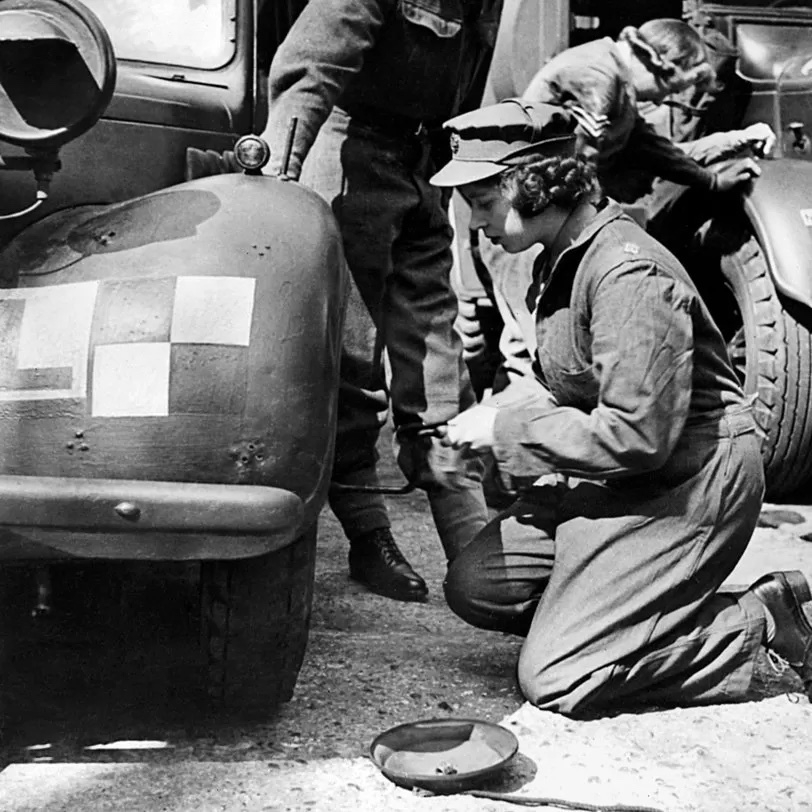
This is the moment George W. Bush heard that a second plane had crashed into the WTC.

FWIW: amateur comes from the Latin (via French) amatorem: lover.
An amateur does a thing primarily for the love of that thing.
More than a few friends have slowly become fans of The Beautiful Game by way of two things:
(1) My own peer pressure / love for the game
(2) My introduction of @ayjay’s review of The Language of the Game
Or put another way: what we need most in moments of conflict are the humanities, and what we are offered instead is a dangerous parody.
My latest essay for The Living Church.
Two Football Notes
-
With more Americans playing in top flight European leagues than ever, and performing especially well in the Premier League, it is hard to not let USMNT World Cup anticipation and expectations grow every weekend. Sure, it could all be a set up for an extremely disappointing winter. But it could also be the preface to a thrilling run deep into the knockout rounds.
-
The Premier League is off to a fascinating start. (Come on you Spurs!) Yes, we won’t be through August until this weekend’s matches, but it is an interesting opening month to say the least. Leeds, Liverpool, Man U, and Man City all with welcomed surprises. Things are just getting started. Remembering back to last season: Tottenham at the top and Arsenal at the bottom at the end of August. They finished the season 4 and 5, respectively.
Rich Mullins was the greatest of the 90s era evangelical musicians. (If you know the era, you know the era…)
I often find myself thinking through lines still engrained in my head from songs like this one.
After the year-long run streak finished in March, I fell off the bandwagon for a couple of months. Picking it back up by trying to run every street in my neighborhood (Heights Park) and then city (Richardson). Progress map after a few runs this week.

There are 82 years between these two: my daughter (2) and my grandmother (89), both hiking Red Rocks on our annual two week vacation.

My article on social media and virtue that recommends M.b as a viable alternative to Big Social was published today by The Living Church.
Our ancestors sharing what they saw when they checked in on our “progress”:
They have dwellings, but they often pay people to destroy them because they are outdated. And then they pay those same people to put them back together in a style that will soon be outdated.

